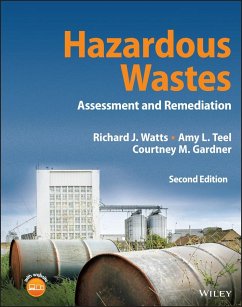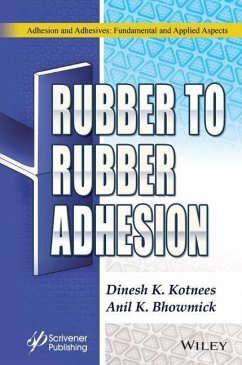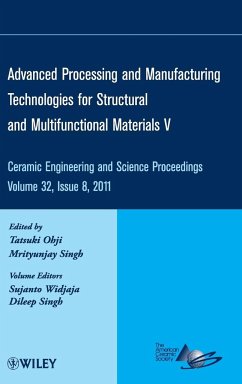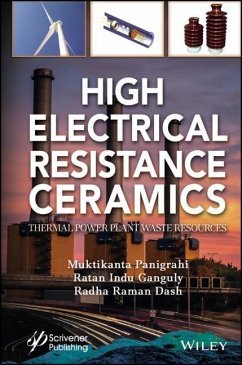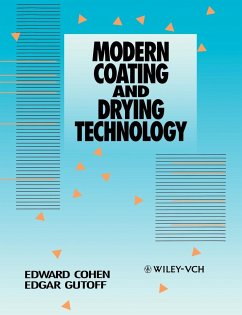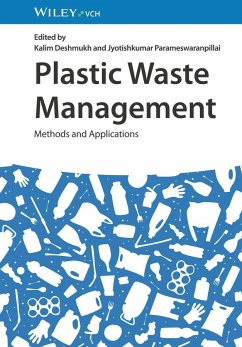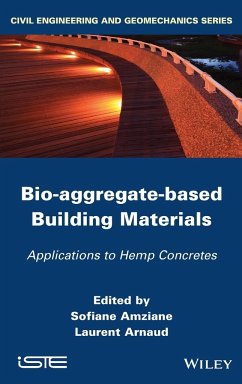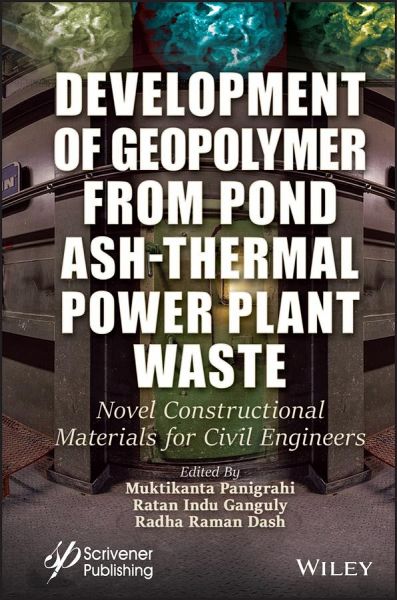
Development of Geopolymer from Pond Ash-Thermal Power Plant Waste
Novel Constructional Materials for Civil Engineers
Herausgegeben: Panigrahi, Muktikanta; Ganguly, Ratan Indu; Dash, Radha Raman
Versandkostenfrei!
Versandfertig in über 4 Wochen
174,99 €
inkl. MwSt.
Weitere Ausgaben:

PAYBACK Punkte
87 °P sammeln!
DEVELOPMENT OF GEOPOLYMER FROM POND ASH-THERMAL POWERPLANT WASTEExplains how geopolymer technologies using industrial waste obtained from thermal power plants become cementitious materials in construction sectors for civil engineers.Utilization of waste materials has become a global challenge since they endanger our environment. In this book, the authors demonstrate how to utilize fly ash/pond ash (waste materials from thermal power plants) to produce a novel material called 'Geopolymer' (GP). Red mud, slags, etc., are mixed with fly ash to produce GP with enhanced strength. As shown in a few ...
DEVELOPMENT OF GEOPOLYMER FROM POND ASH-THERMAL POWERPLANT WASTE
Explains how geopolymer technologies using industrial waste obtained from thermal power plants become cementitious materials in construction sectors for civil engineers.
Utilization of waste materials has become a global challenge since they endanger our environment. In this book, the authors demonstrate how to utilize fly ash/pond ash (waste materials from thermal power plants) to produce a novel material called 'Geopolymer' (GP). Red mud, slags, etc., are mixed with fly ash to produce GP with enhanced strength. As shown in a few European countries, GP can replace cement, and some permanent structures constructed with GP are now appearing in a few advanced countries. GP, and geopolymer concrete, is considered suitable for the construction of roads, buildings, etc., and will eventually, fully or partially, replace cement.
The book highlights the mechanism of the formation of GP from pond ash.Properties of structures made with GP concrete are found to be comparable to those made with cement concrete. Systematic investigations are presented to understand the chemistry of GP formation with pond ash materials. Performances of these materials above ambient temperature, as well as with different environmental conditions, are also evaluated.
Audience
The book will be used by civil engineers in the construction and ceramic industries, as well as the industrial waste sector. Researchers in materials science, structural and civil engineering, environmental science, and ceramic engineering, will also benefit. Additionally, the book is suitable for graduate courses in civil engineering.
Explains how geopolymer technologies using industrial waste obtained from thermal power plants become cementitious materials in construction sectors for civil engineers.
Utilization of waste materials has become a global challenge since they endanger our environment. In this book, the authors demonstrate how to utilize fly ash/pond ash (waste materials from thermal power plants) to produce a novel material called 'Geopolymer' (GP). Red mud, slags, etc., are mixed with fly ash to produce GP with enhanced strength. As shown in a few European countries, GP can replace cement, and some permanent structures constructed with GP are now appearing in a few advanced countries. GP, and geopolymer concrete, is considered suitable for the construction of roads, buildings, etc., and will eventually, fully or partially, replace cement.
The book highlights the mechanism of the formation of GP from pond ash.Properties of structures made with GP concrete are found to be comparable to those made with cement concrete. Systematic investigations are presented to understand the chemistry of GP formation with pond ash materials. Performances of these materials above ambient temperature, as well as with different environmental conditions, are also evaluated.
Audience
The book will be used by civil engineers in the construction and ceramic industries, as well as the industrial waste sector. Researchers in materials science, structural and civil engineering, environmental science, and ceramic engineering, will also benefit. Additionally, the book is suitable for graduate courses in civil engineering.




